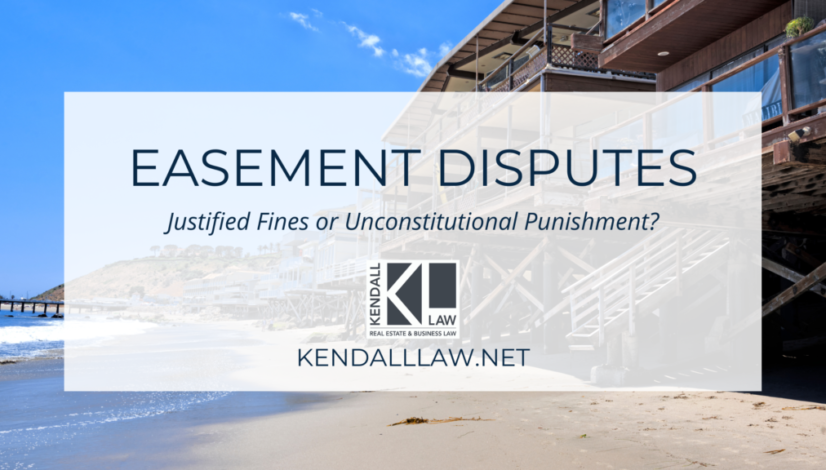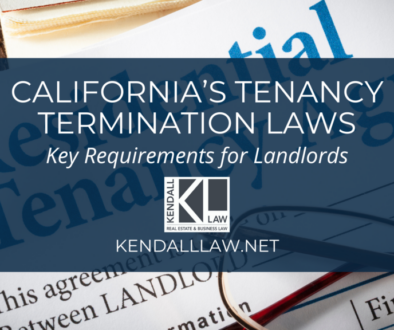Easement Disputes: Justified Fines or Unconstitutional Punishment?
Written Contribution by Jonathan Kim
Homeowners for a beach front property in Malibu were slapped with a hefty fine of $4.1 million after refusing to comply with an order to cease and desist from the California Coastal Commission. The Commission utilized Public Resources Code Section 30821, which allows for a penalty of up to $11,250 per day, to which the homeowners are challenging the Constitutionality of such harsh penalties. While this case is certainly bound to be heard in front of the Supreme Court, there are several lessons to be learned.
This issue stemmed from an easement dispute where a previous owner had gone against the California Costal Commission and installed multiple un-permitted structures on a 5-foot wide vertical easement located on one side of the property. The structures, which included an entire deck as well as a locked gate, blocked public access to the easement which would ultimately lead to the beach. Homeowner and Plaintiff, Warren Lent, bought the property in 2002, and operated under the assumption that the structures were lawfully permitted; hence, he was unaware of the previous owner’s permit violations. In 2007, the Commission served Lent with a notice to cease and desist and ordered to remove all structures blocking the easement.
Both parties argued back and forth, dragging out the case for several years. During this time the Commission invoked Public Resources Code Section 30821 and imposed a daily penalty for every day of Lent’s non-compliance. At a hearing, the Commission decided to impose fines of more than $4.1 million, to which the California Courts upheld. Lent attempted to appeal and argued that such penalties are excessive and even unconstitutional, but the courts rejected his appeal due to the amount of evidence substantiated against Lent. Post appeal, Lent demolished the structures; yet ironically, the Mountains Recreation and Conservation Authority installed their own locked gate on the easement.
Such exorbitant fines, especially without the safeguards of a trial, may raise a constitutional question of procedural due process that must be reviewed by the Supreme Court.
While this is certainly an unprecedented and extreme case, there are certainly lessons to be learned. For instance, before buying property, homeowners must be wary if an easement is part of the property, as there are codes and regulations associated with managing an easement. Homeowners should also pay close attention and ensure that all permits are up to date.
Handling an easement dispute can be quite complex and can end up being costly. Fortunately, the attorneys here at Kendall Law are well equipped and experienced at handling easement disputes. If you are encountering an easement dispute, contact Kendall Law today or call (310) 619-4941 to schedule a consultation.
Author: Jonathan Kim





